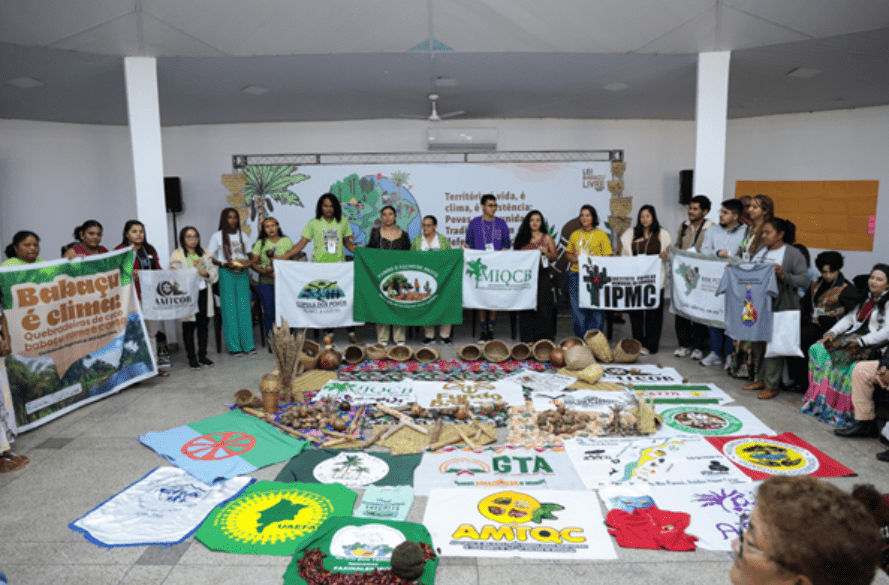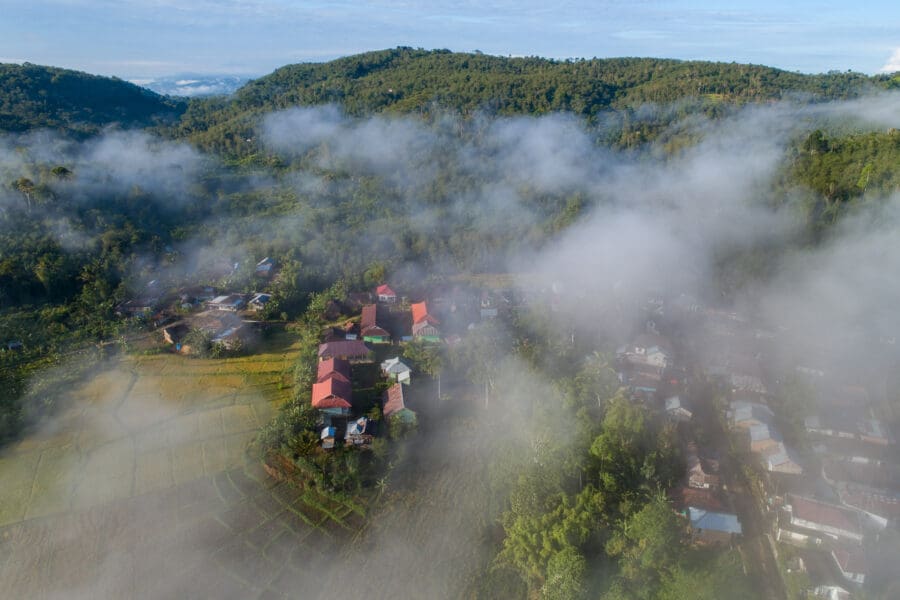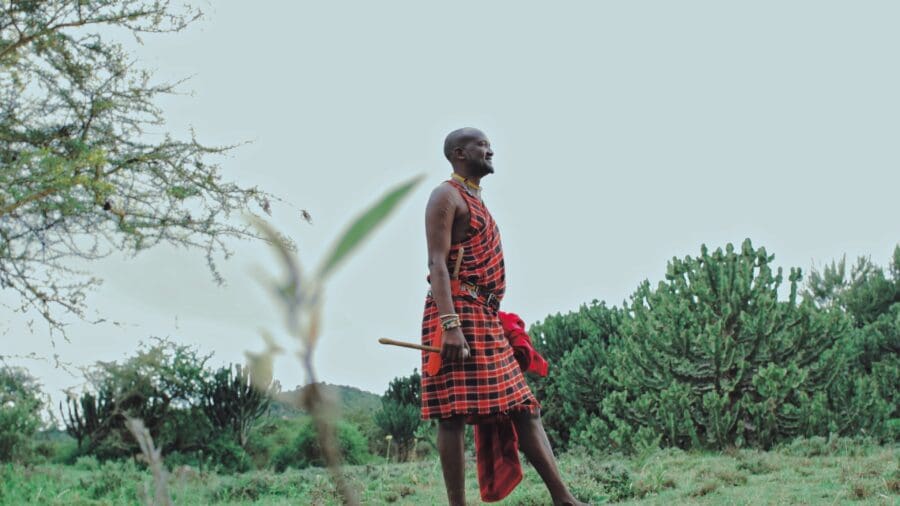As the world moves toward COP30 in Belém, Brazil, countries are in the process of updating their Nationally Determined Contributions (NDCs)—the key national plans that define climate goals, strategies, and financing needs under the Paris Agreement.
In this crucial context, the Rights and Resources Initiative (RRI) released a two-phase study in September and October 2025, analyzing current NDCs of 25 countries across Latin America, Africa, and Asia.
The aim: to understand how and to what extent the rights, knowledge, and leadership of Indigenous Peoples, Afro-descendant Peoples, and local communities are reflected in these national climate plans.
The studies asked three central questions:
- How are community demands represented—or not represented—in existing NDCs?
- What are the key gaps preventing meaningful inclusion?
- What opportunities exist for improving representation in upcoming NDC updates ahead of COP30?
The findings reveal a consistent pattern: while many NDCs acknowledge Indigenous Peoples, local communities, and Afro-descendant Peoples in broad terms, few translate recognition into concrete, measurable, and rights-based commitments.
Why Territorial Rights Are a Climate Imperative
Decades of research show that secure tenure rights are among the most effective tools for both climate mitigation and adaptation.
Indigenous and local community-managed forests have significantly lower deforestation rates and store vast carbon stocks, and in South America, Afro-descendant Peoples’ territories reduce forest loss by up to 55% while preserving high-carbon-density areas.
When tenure is unclear, territories face encroachment from mining, oil extraction, and industrial agriculture, both of which are major drivers of deforestation and emissions.
Recognizing territorial rights, therefore, is not only an ethical or social issue: it is a proven climate solution.
Findings from Latin America and the Caribbean*
- 100% of NDCs (15/15) mention Indigenous Peoples, but only 40% recognize their territories.
- Only 1 NDC mentions Afro-descendant territorial rights.
- 80% reference local communities, yet most lack concrete tenure measures; some list them only as “vulnerable groups.”
- 1 country includes territorial recognition as a formal climate strategy (Ecuador).
- 3 countries (Belize, Guyana, Honduras) recognize Free, Prior, and Informed Consent (FPIC).
- None include mechanisms for remedy or reparation in cases of rights violations.
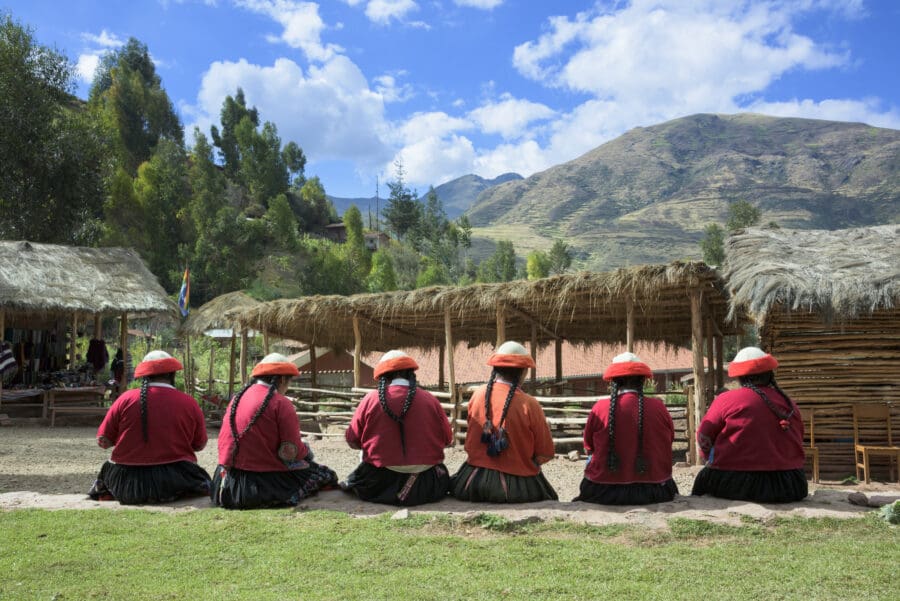
Findings from Africa*
- 4 out of 5 countries mentioned the terms “Local Communities” and “Indigenous Peoples” (only exception in Ghana).
- All NDCs were silent about the interface between Indigenous Peoples territorial rights and climate policy.
- 3 out of 5 countries (DRC, Nigeria and Kenya) mention the inclusion of traditional knowledge as part of their adaptation actions, but none include FPIC.
- Only 1 of 5 countries (DRC) includes Indigenous Peoples and local communities as implementation partners.
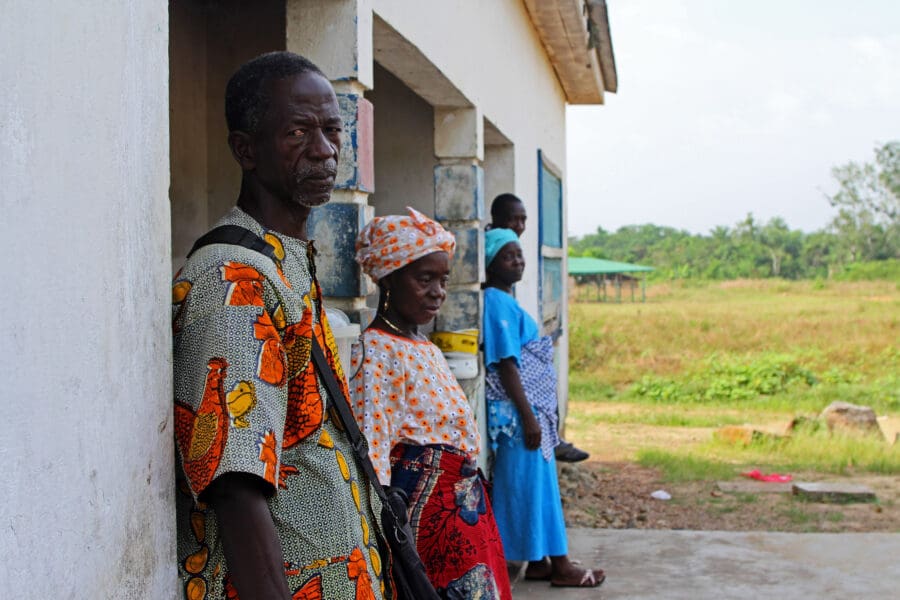
Findings from Asia*
- 80% of NDCs (4/5) reference communities or “local wisdom,” but only 40% (2/5: Cambodia, Nepal) explicitly mention Indigenous Peoples.
- Only Nepal commits to implementing FPIC; none operationalize it in sectoral measures.
- Collective tenure rights are partly recognized in Cambodia but largely symbolic elsewhere.
- No country provides direct access to climate finance or community monitoring mechanisms.
- Traditional knowledge and gender inclusion are increasingly referenced but treated procedurally, not as enforceable rights.
All five countries analyzed in Asia maintain a state-centric approach, overlooking collective tenure, self-governance, and meaningful community participation.
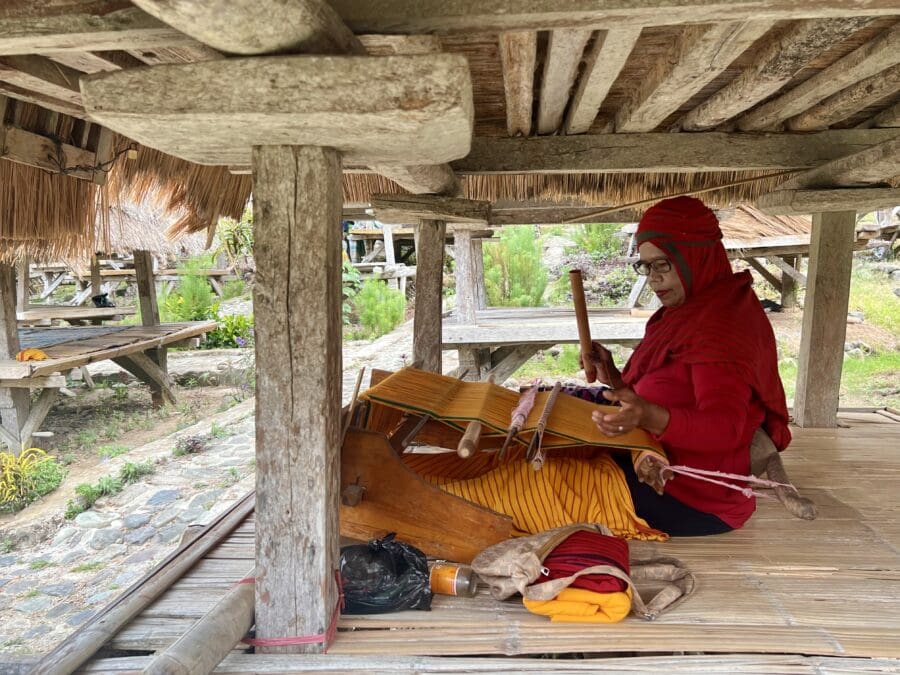
From Findings to Framework: The Rights-Based NDC Model
RRI developed the Rights-Based NDC Model, a practical framework to transform recognition into measurable outcomes. The model is a tool for communities and organizations to advocate for inclusion in their countries’ specific NDCs. It aligns with the Paris Agreement while centering Indigenous Peoples’, Afro-descendant Peoples’, and local communities’ leadership, knowledge, and priorities.
Core Principles of the Model
- FPIC: All climate actions must respect FPIC.
- Territorial rights: Recognizing and protecting Indigenous Peoples’, Afro-descendant Peoples’ and local communities’ territories is essential for mitigation and adaptation.
- Integration of traditional knowledge: Community knowledge must guide national strategies.
- Direct access to climate finance: Communities need simplified, equitable access to funds.
- Full participation: Rightsholders must have decision-making power at all stages.
- Gender and intergenerational inclusion: Women and youth must lead in climate agendas.
- Safeguards and accountability: Clear mechanisms for remedy and risk mitigation are essential.
The Model uses the SMART framework (Specific, Measurable, Attainable, Relevant, Time-bound) to ensure clarity, accountability, and measurable progress.
A Call to Action Ahead of COP30
With updated NDCs due at COP30, governments have an unprecedented opportunity to embed human rights and community-driven solutions into national climate strategies. Some countries have already submitted updates, but these must go beyond rhetoric and commit to actionable, rights-based policies.
“This is the moment to pressure governments not to miss an important opportunity to recognize communities’ pivotal role in conservation and ensure climate commitments translate into concrete rights.”
— Fernanda Almeida, an RRI researcher and land and forest tenure expert.
Explore the model and join the conversation: Read the Rights-Based NDC Model and help amplify the call for rights-based climate action ahead of COP30. Together, we can make the next generation of NDCs stronger, fairer, and truly effective.



